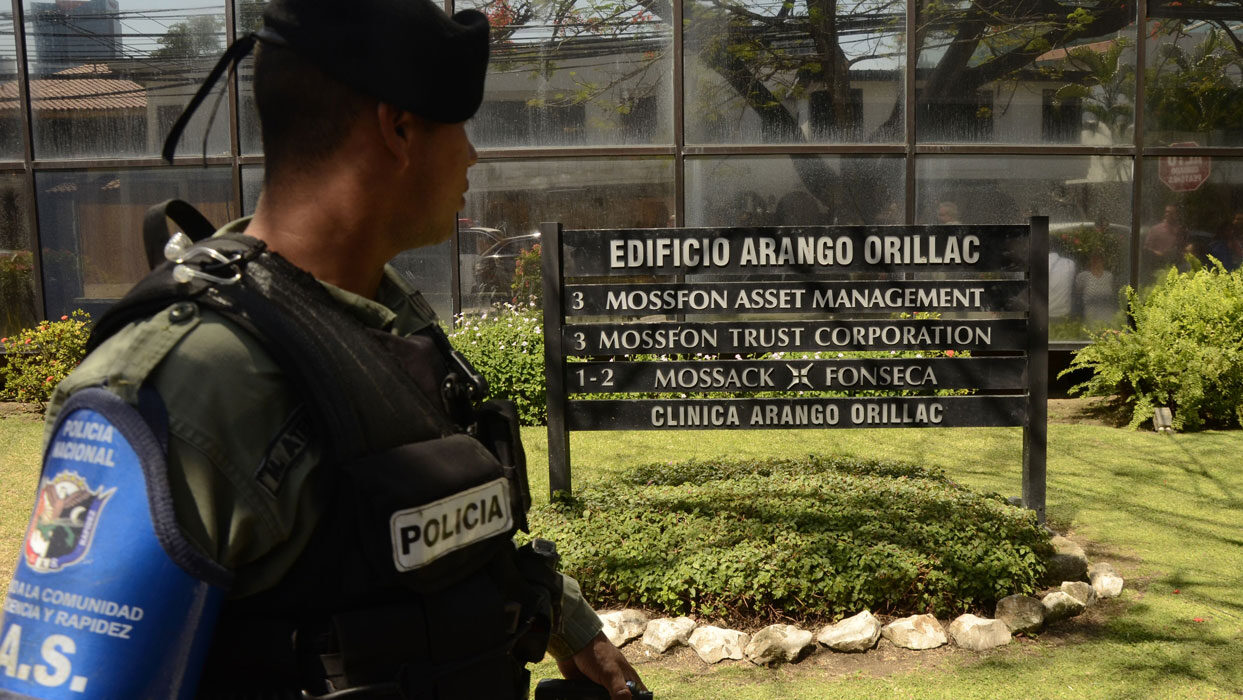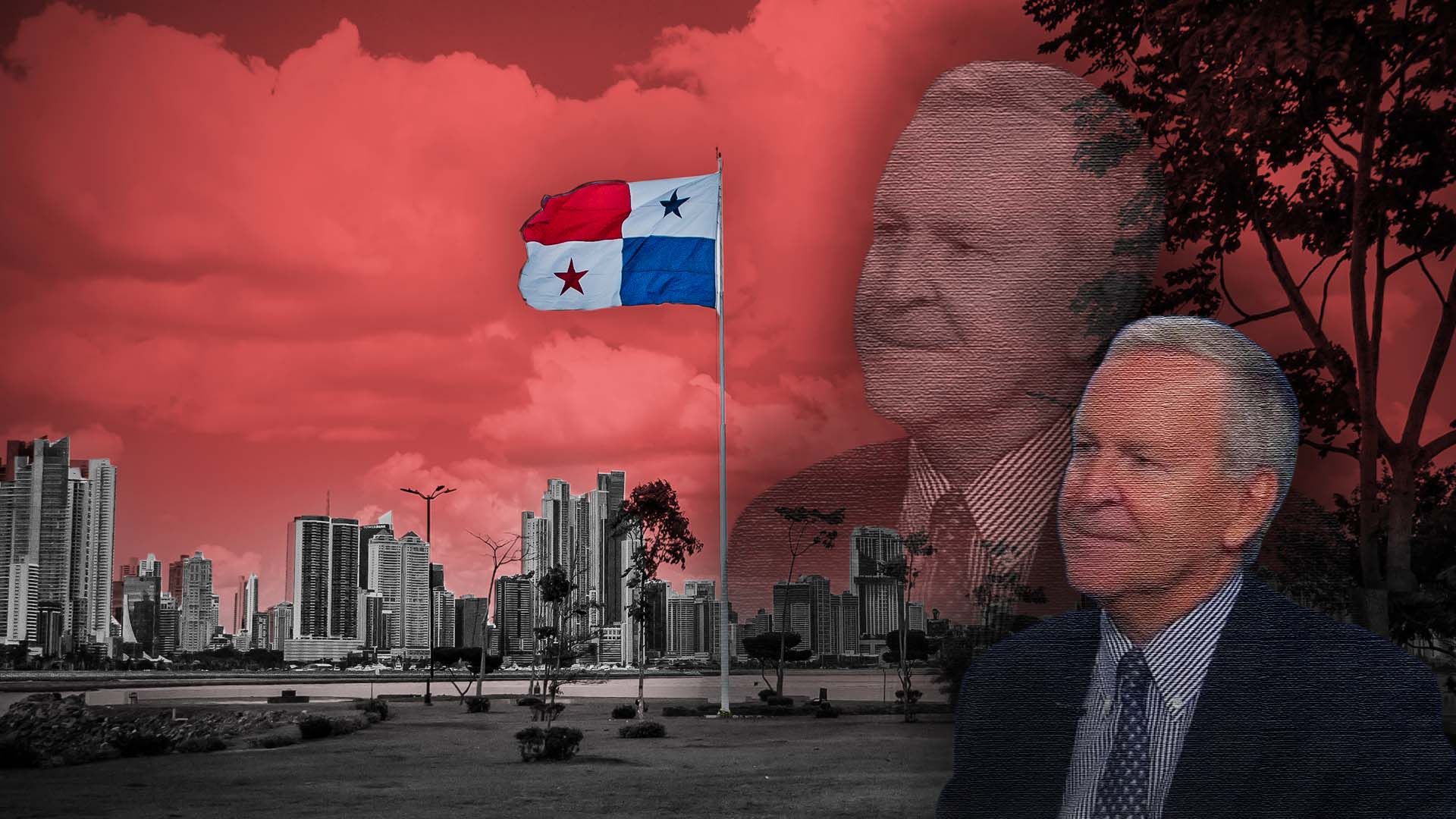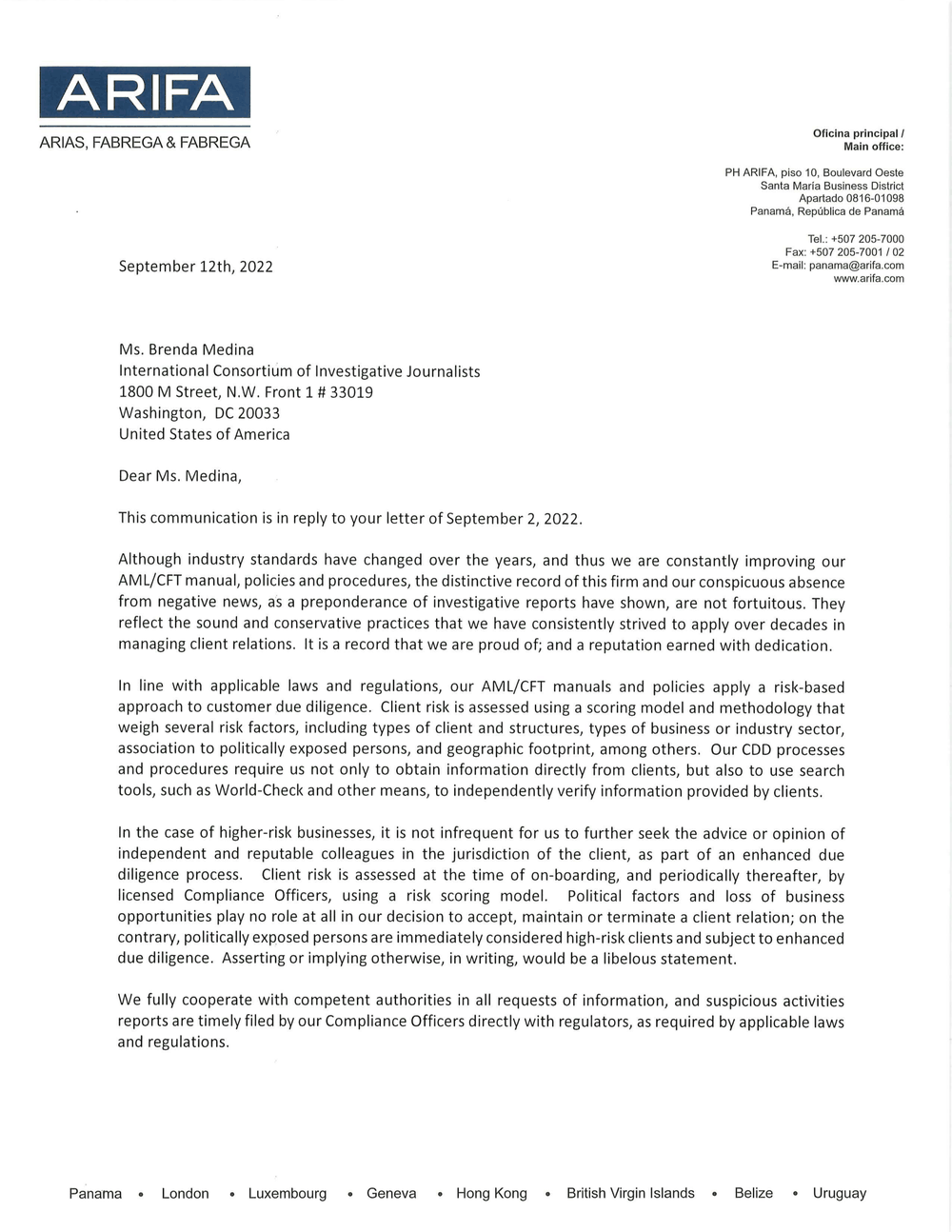‘Most-wanted’ Chilean arms dealer concealed ties to companies with help from Panama’s offshore industry
Carlos Cardoen sold cluster bombs to Saddam Hussein. Leaked documents detail how an elite firm chose to stick with the notorious former arms merchant
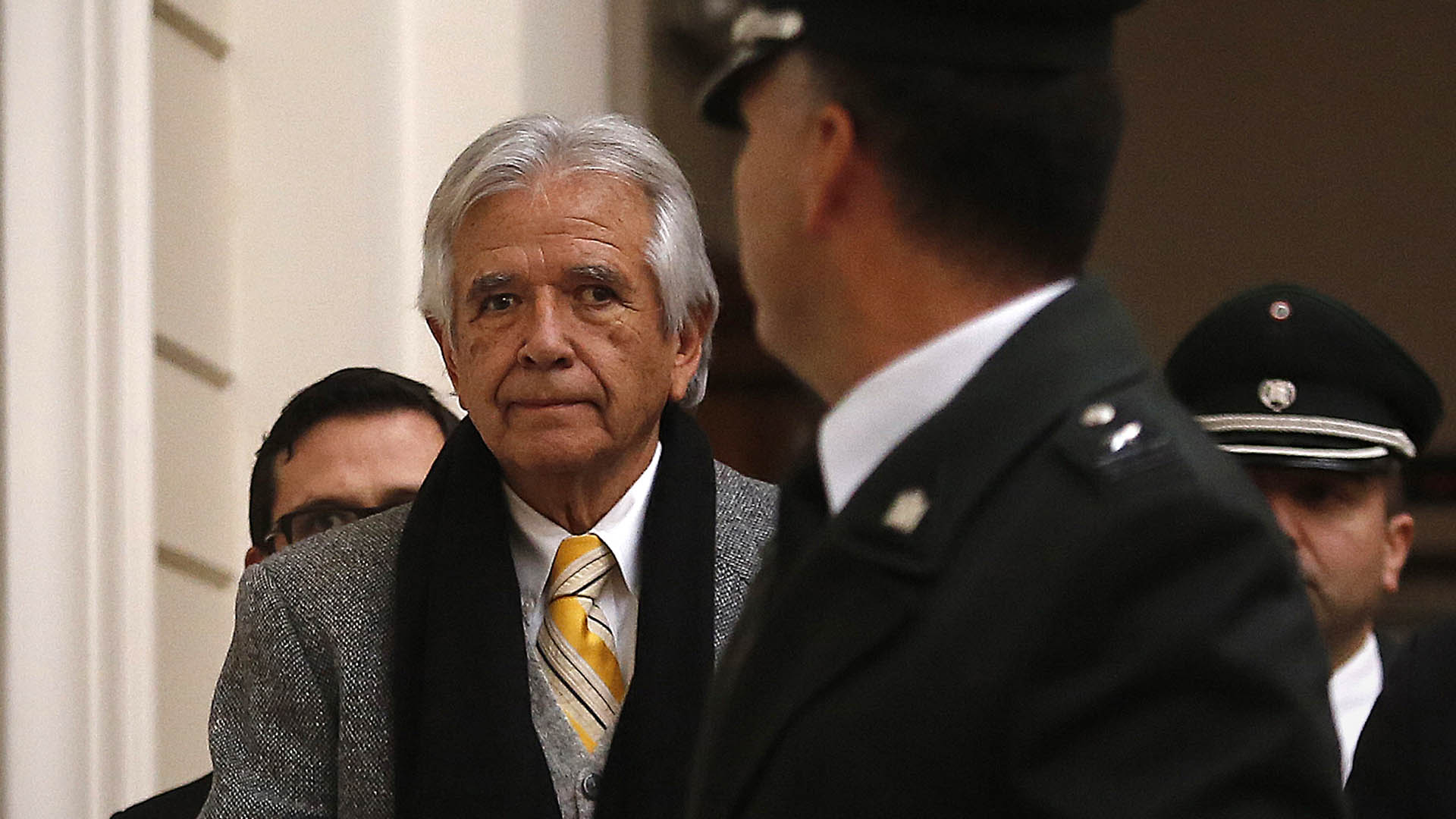
By March 2006, Carlos Cardoen had been on Interpol’s most-wanted list for more than a decade.
The Chilean tycoon was indicted by a federal grand jury in Miami in 1993, charged with illegally importing a metal called zirconium from the United States to make cluster bombs sold to Saddam Hussein’s regime in Iraq. Soon after, Interpol, the international law enforcement agency, issued a “red notice” — its highest-level warning — requesting that law enforcement authorities worldwide arrest Cardoen if he entered their jurisdictions, and hold him for possible extradition to the U.S. Cardoen’s company had also built weapons for the Chilean military during Augusto Pinochet’s dictatorship, as widely reported since at least the early 1990s.
Cardoen’s very public legal problems didn’t prevent Arias, Fàbrega & Fàbrega, a prominent Panamanian law firm and offshore service provider, from representing his offshore companies for years after Interpol issued the red notice, leaked documents show. The law firm, known as ARIFA, set up shell companies and a private interest foundation on Cardoen’s behalf and provided stand-in directors to keep his ties to the entities secret.
The newly leaked documents provide unusual detail on ARIFA’s closed-door deliberations over whether Cardoen represented a liability for the firm and what to do about it. In 2006, after several months of back and forth, and against the recommendation of one of its attorneys, the firm decided to keep working for the politically-connected businessman.
In 2010, ARIFA severed its ties with the Cardoen offshore companies described in the leak. Cardoen soon found another Panamanian lawyer, Rolando Candanedo, to become the registered agent for the businesses.
Vetting potential and existing clients is supposed to be a top priority for lawyers and financial agents who set up companies in tax and secrecy havens. They are legally required to consider whether the services they provide could aid and abet crimes like fraud, tax evasion and money laundering.
But, as the International Consortium of Investigative Journalists documented in the 2021 Pandora Papers probe and other investigations, offshore service providers frequently err on the side of keeping risky clients, who are often very wealthy people seeking anonymity.
The publication of the Pandora Papers investigation prompted a leak of more than 86,000 records from ARIFA and additional documents from another offshore provider, Amicorp. ICIJ explored those records with Latin American partners, including Convoca in Peru, La Nación and El DiarioAr in Argentina, and CIPER and LaBot in Chile.
The ARIFA files, mostly created between the early 1990s and 2013, contain information on contracts, financial deals and legal opinions.
The newly leaked documents show that by 2006 ARIFA was aware of the controversy surrounding Cardoen and notified him of its intention to cut ties and stop providing the services of registered agent and stand-in directors to one of his companies in Panama, Farkit Trading Corp. In explaining the decision, the firm said it had learned of Cardoen’s involvement in the arms industry — that his company “is or was engaged in the production and sale of weapons of war.”
Cardoen’s representatives pushed to reverse the decision, an internal memo shows. Three months later, an executive at Empresas Cardoen, an umbrella company for his varied business interests — including mining and wineries — responded that Cardoen had been out of the arms industry for more than a decade. A different executive added that a prestigious Chilean law firm, where the country’s then-justice minister worked as a partner, was representing Cardoen in his efforts to fight the U.S. indictment.
At least one ARIFA attorney, LeRoy Watson, urged the firm to stick with its decision to cut ties with Cardoen, the documents show. “The firm should resign unilaterally from all positions,” he said, according to a memo drafted by the firm after the fact.
A Chilean corporate attorney warned ARIFA that Cardoen posed a reputational risk. Cardoen is “not the best name to mention as a client, given that the origin of his fortune is the fabrication of weapons,” Francisco Javier Illanes wrote in an email, according to the firm’s memo.
The warnings went unheeded. In June 2006, the firm told Cardoen’s representatives that it had “reconsidered its decision” to cut ties “in light of information” sent the day before — referring to a confidential memo, not included in the leak, that provided information about Cardoen’s legal dispute with the United States.
A few months later, ARIFA created for Cardoen two shell companies and a private interest foundation, a financial entity similar to a trust that offer protections beyond what shell companies typically provide.
In response to questions, a representative from Empresas Cardoen said that the companies in Panama are “very old structures” created in response to the 1993 Interpol red notice, which “made financial actions difficult” for it.
In a letter, ARIFA said it weighs several risk factors when vetting clients, including ties to political figures and their line of business. Citing “public records,” ARIFA said that by 2006, the focus of Cardoen’s businesses “was not in high-risk sectors.”
ARIFA said it follows “sound and conservative practices that we have consistently strived to follow for decades in managing client relations.” The firm said the officers and shareholders of the offshore companies it helped create had not been convicted or charged with crimes, such as money laundering and terrorism financing, that would have required it to monitor and report to authorities.
‘No one is an angel on Earth’
Founded more than a century ago, ARIFA is one of Panama’s most storied law firms. In 1932, one of its founders, Harmodio Arias Madrid, left the firm temporarily to serve as president of Panama. “The three ARIFA founders and subsequent partners have held numerous posts as public servants,” the firm says on its website.
For nearly a century, Panama has had a reputation as a haven for foreigners looking to use anonymous shell companies to hide assets and avoid taxes. ICIJ’s 2016 Panama Papers and other investigations revealed the role played by Panamanian law firms in providing offshore services to clients, who have included public officials, wealthy celebrities and criminals.
On its website, ARIFA boasts that its partners drafted legislation that created some of the most sought-after anonymous offshore vehicles.
The Panamanian government has revised laws and regulations to require more transparency from the offshore services industry — changes in line with tightening international standards on financial secrecy — though some advocates say that the new rules are poorly enforced.
Farkit Trading Corp. was incorporated in 1985, a time when the true owners of Panamanian companies could disguise their identity almost entirely, including from offshore services providers. In its letter to ICIJ, ARIFA said that their due diligence records don’t show a link between Cardoen and Farkit at the time of its incorporation. The next year, public records show, Farkit purchased land in Chile that was later transferred to a Chilean holding company linked to Cardoen.
At the time Farkit was created, Cardoen’s weapons company, Industrias Cardoen, made and sold weapons to Pinochet’s military government in Chile. It eventually employed more than 800 people with subsidiaries in Latin America and Europe.
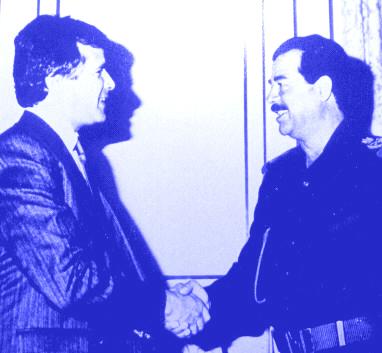
Perhaps Cardoen’s best-known product was a cluster bomb, which opens up mid-air to scatter explosives able to wreak destruction across an area the size of several football fields. Cardoen reportedly sold more than $200 million worth of cluster bombs to Iraq during its bloody war with Iran in the 1980s.
Cardoen, who earned a doctoral degree in metallurgical engineering from the University of Utah, patented his “safer and simpler cluster bomb” in the U.S. in 1988, according to public records. The bombs have been largely banned since 2008 under the international Convention on Cluster Munitions. Yet some of the most powerful countries, like the U.S., China and Russia, haven’t signed the convention.
According to a U.S. federal indictment, Cardoen conspired with an American company to illegally export 130 tons of zirconium to Chile and used the metal to make 24,000 cluster bombs that were sold to Saddam Hussein’s regime in Iraq, which was at war with Iran. Cardoen said he was made a scapegoat after Iraq invaded neighboring Kuwait, a U.S. ally, in August 1990.
The indictment triggered a legal battle that has lasted more than three decades and has prevented Cardoen from traveling outside Chile. With the criminal charges still pending and Interpol’s red notice in effect, Cardoen moved to diversify his holdings, expanding into tourism, wine production and real estate, and he eventually abandoned the arms business.
In the midst of his legal troubles, Cardoen opened a foundation to support Chilean cultural institutions.In 2005, Chile’s Ministry of Education awarded him the Gabriela Mistral Order of Educational and Cultural Merit, named for the Nobel Prize-winning poet and one of the nation’s highest honors.
At the ceremony, Chile’s then-Education Minister Sergio Bitar explained the award saying, “Men may do some things for a living and then do others. We must also consider the good that people do, beyond the discussions that people might have on the issue of wars and weapons.”
He added, “Besides, no one is an angel on Earth.”
A private foundation
About six months after ARIFA decided to keep Cardoen as a client, the firm created Fundación Colchagua, a private interest foundation named after the province in Chile where Cardoen was born.
Although the word “foundation” is usually associated with charities and nonprofits, private interest foundations in Panama are financial entities that offer protections beyond what shell companies provide. Under Panamanian law, assets protected by a private interest foundation cannot be seized; all foreign assets are exempt from taxes; and there is no legal requirement to disclose owners or ultimate beneficiaries.
Cardoen is listed as Fundación Colchagua’s beneficiary and “protector,” effectively giving him full control. He is “the only person entitled to enjoy the assets of the Foundation and its income,” according to a document explaining its creation.
Two of his children were named members of its board, according to one of the leaked documents and public records. Other documents reveal that, in case of Cardoen’s death, the beneficiaries of the foundation would be two companies linked to Cardoen, administered by ARIFA: Totorilla Corp. and Pantanillo Corp. A third beneficiary is Inversiones Nancagua SA., registered in Chile.
ARIFA’s website says that, in the 1980s and 1990s, two of its attorneys had an “outstanding participation in the drafting of laws on trusts and private interest foundations, still in force with some modifications.” The law establishing private interest foundations was enacted in 1995.
In a leaked ARIFA promotional booklet, the firm touted the secrecy protections offered by private interest foundations. “The Foundation also avoids assets being held, directly or indirectly, in the client’s own name, although substantial control over those can still be exercised by the client.”
A document similar to a corporate charter specifies that Fundación Colchagua’s purpose was to “hold, conserve, manage, invest, distribute and dispose of the assets of the Foundation for the benefit, support, maintenance, and education of the beneficiaries.”
The records show that in 2010, ARIFA stopped providing services to Cardoen’s companies and Fundación Colchagua. The documents don’t give a reason for the break, but they do say that in 2009 a “claim” from Bombril SA, a Brazilian household products company, had prompted the law firm to do another internal review of Cardoen and his Farkit Trading.
In 2010, Cardoen found another Panamanian lawyer, Rolando Candanedo, to serve as registered agent for his offshore entities. Candanedo’s services are popular among wealthy Chileans looking to create shell companies overseas, according to The Clinic, a Chilean news outlet.
In an email to ICIJ, Candanedo said his firm complies with local laws and “with the highest standards of legal practice in Panama. Among them, the duty to confidentiality that prevents us from commenting on the matters you asked about, or even confirming who is or isn’t our client.”
In a 2019 profile of the family by a Chilean newspaper, Cardoen’s son Andres Cardoen claimed his father and other family members “don’t have and didn’t have capital abroad.” This summer, Carlos Cardoen told another news outlet that he didn’t belong to “that group of businessmen who prefer to take their capital out of the country.”
Candanedo remained the registered agent for Fundación Colchagua until Dec.17, 2013. That day, the foundation’s board dissolved Fundación Colchagua and transferred another Cardoen company to Panama, appointing Candanedo as registered agent.
Farkit Trading remained active for another decade before it was suspended for not paying Panama’s annual corporate fee, according to Panama’s corporate registry. Candanedo continues to act as agent for at least three Cardoen companies, according to filings with the Panamanian corporate registry.
Cardoen, who turned 80 in May, is still fighting to have Interpol’s notice lifted. The U.S. didn’t formally file a request for extradition until March 2019, 26 years after Cardoen’s indictment.
In March 2020, the Chilean Supreme Court rejected the extradition request, saying that too many years had passed since Cardoen was charged and that the crimes he was accused of have no equivalent under Chilean law.
Following the decision, Cardoen requested that the Chilean Ministry of Foreign Affairs grant him diplomatic protection and that the ministry ask Interpol to lift the red notice. He argued that his decades-long status as an international fugitive “violates his fundamental rights of access to justice and individual freedom.” The unusual request caused bureaucratic confusion in Chile, with the Foreign Affairs Ministry asking the Comptroller General’s Office for guidance.
The comptroller general concluded that, absent an established legal procedure for granting diplomatic protection, the decision is at the discretion of the Ministry of Foreign Affairs.
The ministry’s decision is pending.
Contributors: Richard H. P. Sia, Emilia Díaz-Struck, Ben Hallman, Dean Starkman.
Hugo Alconada, Ricardo Brom, Sandra Crucianelli, Emilia Delfino, Mariel Fitz Patrick, Maia Jastreblansky, Ivan Ruiz, Milagros Salazar, Gonzalo Torrico reported on additional stories in Argentina and Peru that are being published today by ICIJ’s media partners.
